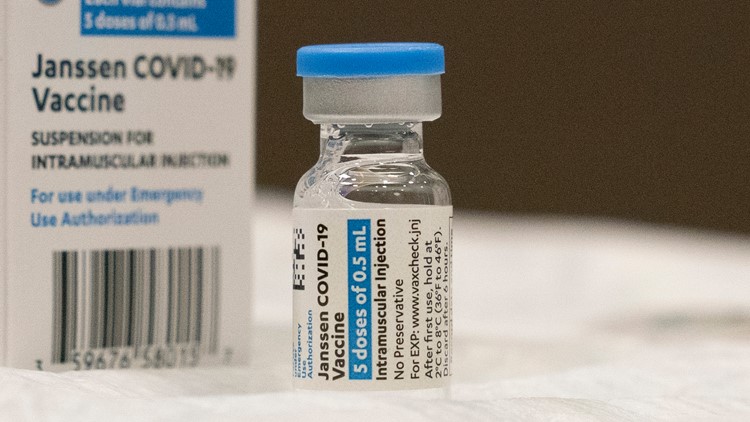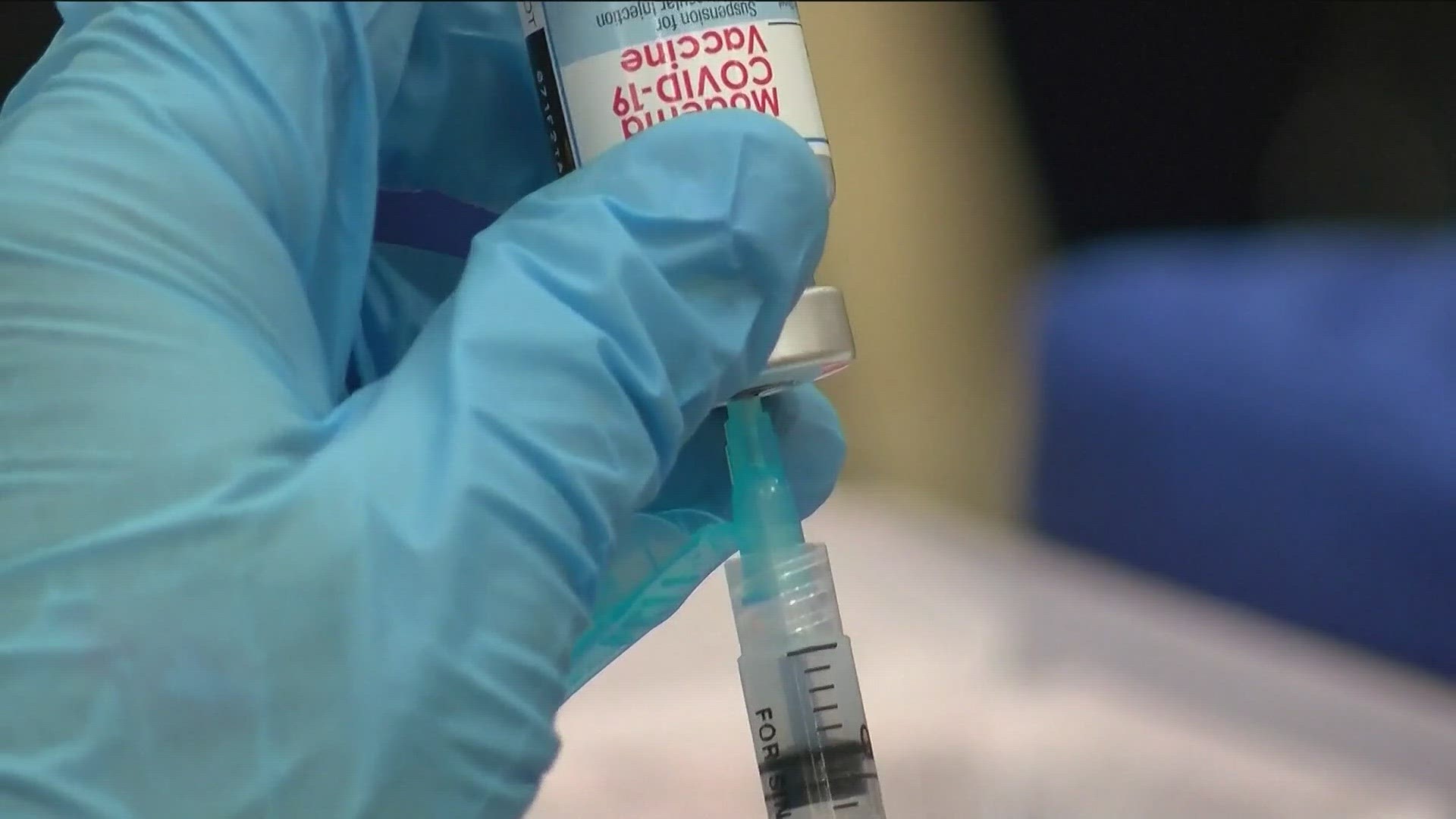ATLANTA — The U.S. is recommending a “pause” in using the single-dose Johnson & Johnson COVID-19 vaccine.
WHAT HAPPENED
Experts want to investigate reports of possible dangerous blood clots. In a joint statement Tuesday, the Centers for Disease Control and Prevention and the Food and Drug Administration said it was investigating clots in in the days after vaccination, in combination with reduced platelet counts.
HOW MANY BLOOD CLOTS
Of the more than 6.8 million Americans who have received a Johnson & Johnson COVID-19 vaccine, there have been six cases of these rare blood clots and low platelet counts.
The cases involved six women, between the ages of 18 and 48. Health officials said they reported the clots 6 to 13 days after receiving the vaccine.
According to CDC data, about 9 million Johnson & Johnson coronavirus vaccines have been delivered to states and are waiting to be administered.
Again, of the 6.8 million doses of the J&J vaccine that have been administered in the U.S., the vast majority had no or mild side effects.
CEREBRAL VENOUS SINUS THROMBOSIS
The CDC and FDA said in a statement that in the known six cases, "a type of blood clot called cerebral venous sinus thrombosis (CVST) was seen in combination with low levels of blood platelets (thrombocytopenia)."
According to Johns Hopkins Medicine, CVST affects about 5 people in 1 million each year.
SYMPTOMS
The agencies are recommending that people who were given the J&J vaccine who are experiencing severe headache, abdominal pain, leg pain, or shortness of breath within three weeks after receiving the shot contact their health care provider.
HOW MANY DOSES
More than 6.8 million doses of the J&J vaccine have been administered in the U.S. More than 124,000 doses of J&J vaccine have been safely administered in Georgia, the state's health department said.
WHAT NOW
Federally-run mass vaccination sites will pause the use of the J&J shot, and states and other providers are expected to follow.
WHAT ABOUT GEORGIA
The Department of Public Health said they would follow the recommendation of the CDC and FDA and pause all J&J vaccines.
The state last week suspended J&J doses at the Cumming Fairgrounds after a handful of people had adverse reactions. One person was sent to the hospital and later released.
WILL THE PAUSE EVER BE LIFTED
The FDA says it expects a short pause of Johnson & Johnson vaccines while regulators investigate reports of potentially dangerous clots in a small number of patients.
Dr. Janet Woodcock, the agency’s acting commissioner, says, “We expect it to be a matter of days for this pause.”
The CDC's Advisory Committee on Immunization Practices will meet Wednesday to discuss the cases and the FDA has also launched an investigation into the cause of the clots and low platelet counts.
Johnson & Johnson said it was aware of the reports of “thromboembolic events,” or blood clots, but that no link to its vaccine had been established.
WHAT ABOUT PFIZER AND MODERNA
There have been no major issues reported with the Moderna or Pfizer vaccine. The state and other suppliers will continue to give that shot to those who are currently eligible.
CDC's Dr. Anne Schuchat said authorities have not seen similar clots after use of the Pfizer or Moderna vaccines, and that people should continue to get vaccinated with those shots.
SAME AS ASTRAZENECA?
So far, the reports appear similar to a rare, unusual type of clotting disorder that European authorities say is possibly linked to the AstraZeneca COVID-19 vaccine.
The Johnson & Johnson and AstraZeneca vaccines are made with the same technology. Leading COVID-19 vaccines train the body to recognize the spike protein that coats the outer surface of the coronavirus. But the J&J and AstraZeneca vaccines use a cold virus, called an adenovirus, to carry the spike gene into the body.
However, the J&J vaccine uses a human adenovirus to create its vaccine while AstraZeneca uses a chimpanzee version.



